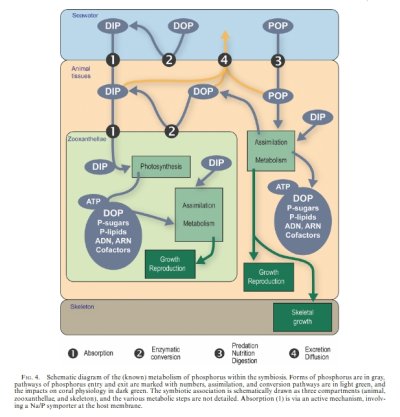I appreciate all of this. I’ve learned more from this one post than all the online reading and research that I’ve done.To add on, this can get tricky since some corals will not care about elevated residual po4 and some will care a lot. Generalizing about "corals," or "SPS" or whatever is not helpful. I mostly have acropora in my tank and there are some that will suffer, stop growing and die back at .1, or so, where others can go to 1.0 and beyond.
I measure about 1-3 (sometimes up to 5 on occasion) ppb on Hannah Ultra low Phosphorous checker. When I had a Hach Total P kit which tests all kinds of phosphates and phosphorous sources, not just orthophosphate, the numbers were 5-10x higher than this. These other forms get phosphorous to your corals too.
Just testing po4 does not tell you the whole story and can be fools gold, IMO. All that it tells you for sure is that you have a surplus.
I, for one, see MUCH faster coralline growth with lower no3 and po4 levels... much faster. Chaeto grows faster for me too, but it will still grow in higher level tanks. I do not experience true acropora burnt tips because 1-3ppb of po4 and .1 no3 are not Ultra Low... just ocean type of level - if you get below these, usually needing chemicals and media, then the skeletons can calcify so fast that they can outgrow organic tissue.
Feed your fish a lot, export a lot. Keep residual levels fairly low if you want to keep any coral at any time, or choose corals that thrive in the levels that you want to keep - find your zen place for cost/effort of export. The rest will be OK.
As to the DOM/DOC… I always figured that algae was just a space competitor. The link to pathogens and localized oxygen depletion is fascinating. I’m not sure what role this plays in an aquarium, but it’s given me a whole new perspective on what wild corals are facing. I was in the BVI a few years ago and did not observe a single living reef cruising through the islands.













